
As Cheshire West and Chester experiences some of the coldest temperatures this winter, the Council’s Highways team has moved up a gear to keep the road network running smoothly.
The Council's Highways Service and its maintenance contractor, Ringway, are always ready to tackle the coldest weather conditions. The fleet of 16 gritting trucks has been mobilised 24 times so far this winter, which is slightly below this time last year.
The fleet keeps 490 miles of roads safe for drivers, using the 6,000 tonnes of rocksalt stored at the Guilden Sutton and Davenham Depots to treat key routes across the borough.
Primary routes are gritted first which include A roads, other main roads and routes used by the emergency services. In periods of continued bad weather secondary routes are sometimes gritted when the primary network is fully treated and if resources are available.
Road surface temperature and whether the road is wet or dry determines what grit treatment is needed – not the air temperature. The grit spread on roads is actually rock salt, which mixes with any moisture to create a saline solution. Saline solutions freeze at a lower temperature than water, so frost and ice doesn’t form on the road.
On nights where frost or icy conditions are forecast, the fleet will spread salt to help prevent ice from forming across the Council's highway network. All gritters are equipped with GPS tracking to enable accurate monitoring of which roads have been treated.
Duty officers will mobilise the gritting fleet when it is predicted that road surface temperatures are to drop below freezing, allowing time for the salt to be applied to the road. Salting is normally completed within four hours and usually before 7am. The Highways teams maintain a close relationship with the MeteoGroup, who provide the weather forecasts.
The Council’s Cabinet Member for Environment, Councillor Karen Shore said: “Our crews are on standby 24 hours a day, seven days a week. The call to go out could come at any hour of the day or night and teams must be ready to respond immediately. I would like to take this opportunity to pass on my thanks to the entire team who make our gritting operation possible.
“When the fleet is mobilised it’s important that we grit within a specific time period which is why we target key roads. We can only grit so much of the network within a timeframe and we must concentrate our efforts on key routes that see the most use.”
During the ongoing pandemic contingencies are in place to ensure the availability of gritter drivers. For example, drivers are now familiar with a couple of ‘extra’ routes in case they need to swap with colleagues.
Salt bins are provided is specific locations for people to use during icy conditions. These are usually residential areas next to shopping areas, part way up hills with a slope over 10% or where there are special circumstances. You can ask for a top up for any current salt bins in your area here:
(Under ‘Report or check a highways fault’ – Winter maintenance.)
Footpaths and cycleways are gritted if snow or ice is likely to last for over 24 hours and if resources are available. Busy footpaths and ones with special circumstances are gritted first – this year this will include locations around COVID-19 vaccination and testing centres, as well as footpaths in shopping areas, outside hospitals and around schools.
Gritting updates are available via the Council’s Twitter feed -Search for the hashtag - #cwacgrit.
More information about the Council’s winter operations, including gritting routes, is on-line at:

 Ten arrested for drugs offences following warrants in Chester
Ten arrested for drugs offences following warrants in Chester
 Ten arrested for drugs offences following warrants in Chester
Ten arrested for drugs offences following warrants in Chester
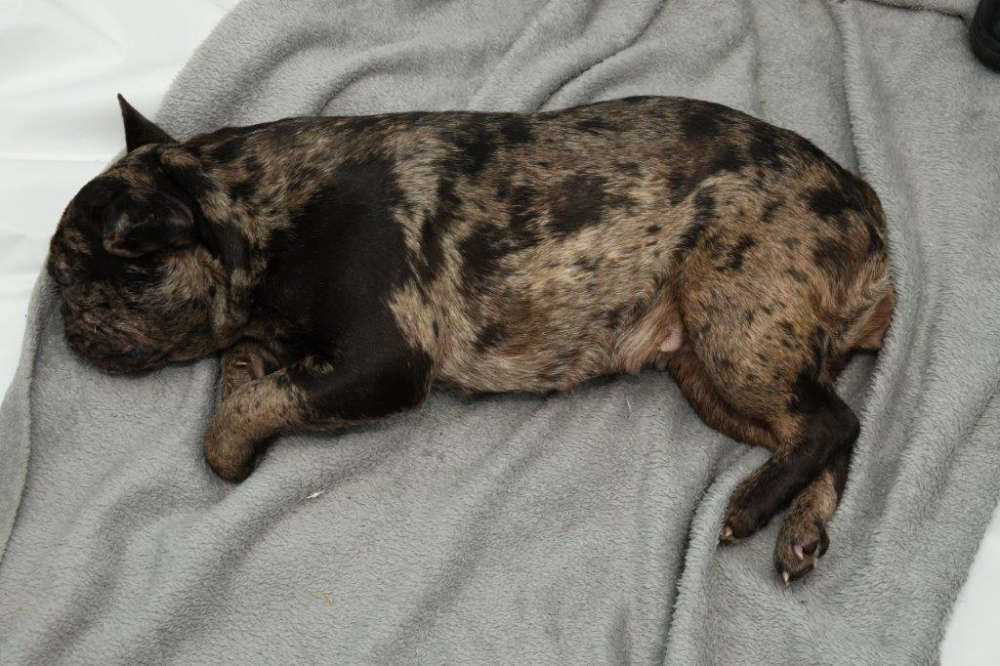 Suspended prison sentence and indefinite ban for Cheshire man who abused his dog
Suspended prison sentence and indefinite ban for Cheshire man who abused his dog
 Recovered Stolen Items
Recovered Stolen Items
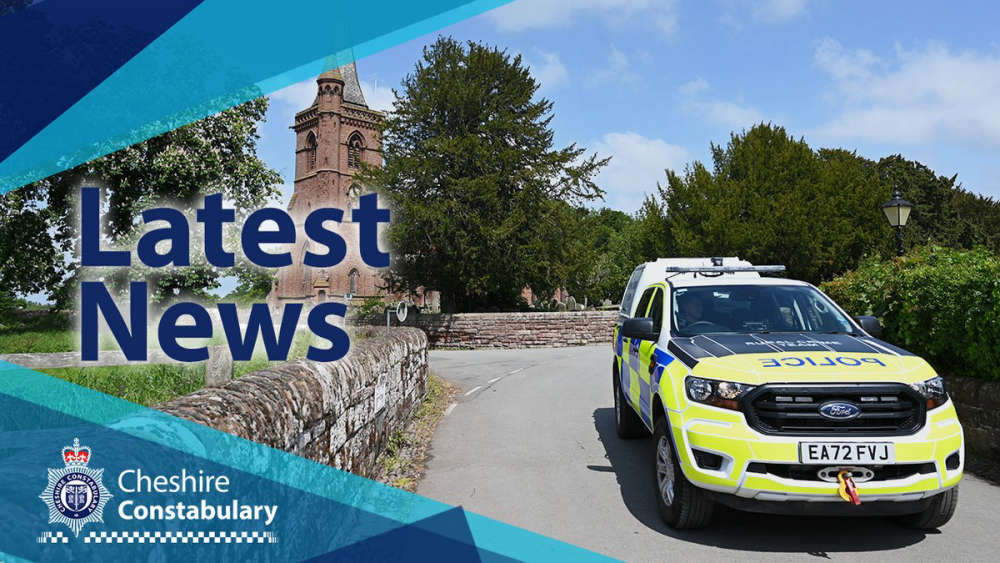 Man charged in relation to courier fraud
Man charged in relation to courier fraud
 Police to target criminal use of Cheshire’s roads
Police to target criminal use of Cheshire’s roads
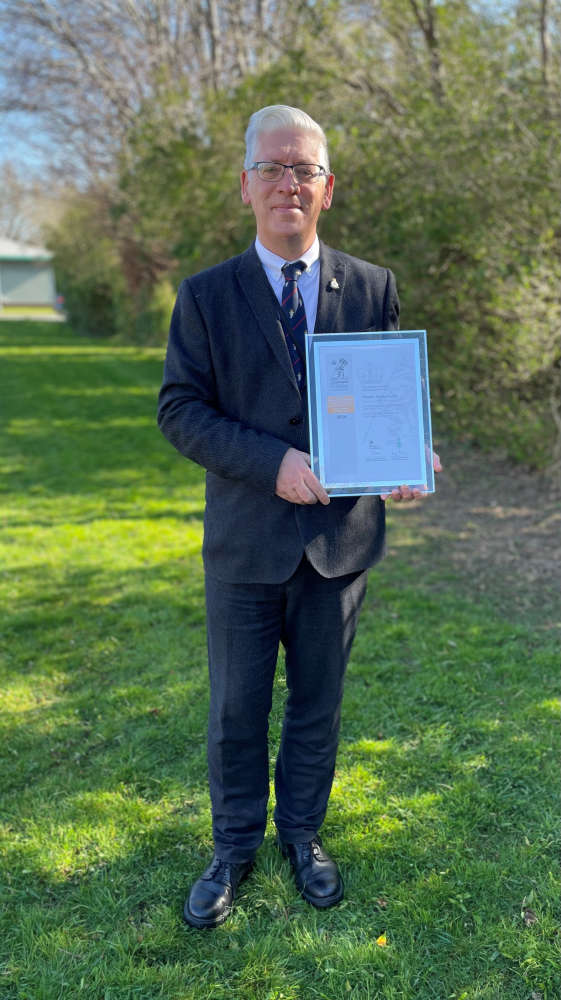 Council awarded Gold Armed Forces Award
Council awarded Gold Armed Forces Award
 Appeal for footage and witnesses following collision in Delamere
Appeal for footage and witnesses following collision in Delamere
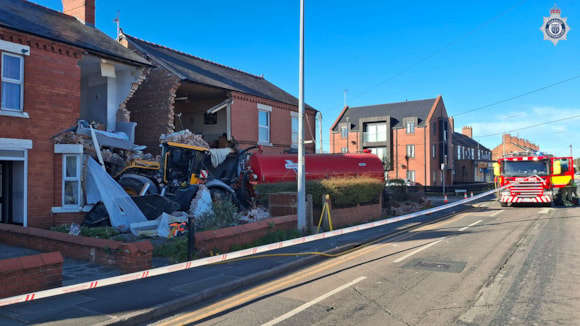 Appeal for information following serious collision in Chester
Appeal for information following serious collision in Chester
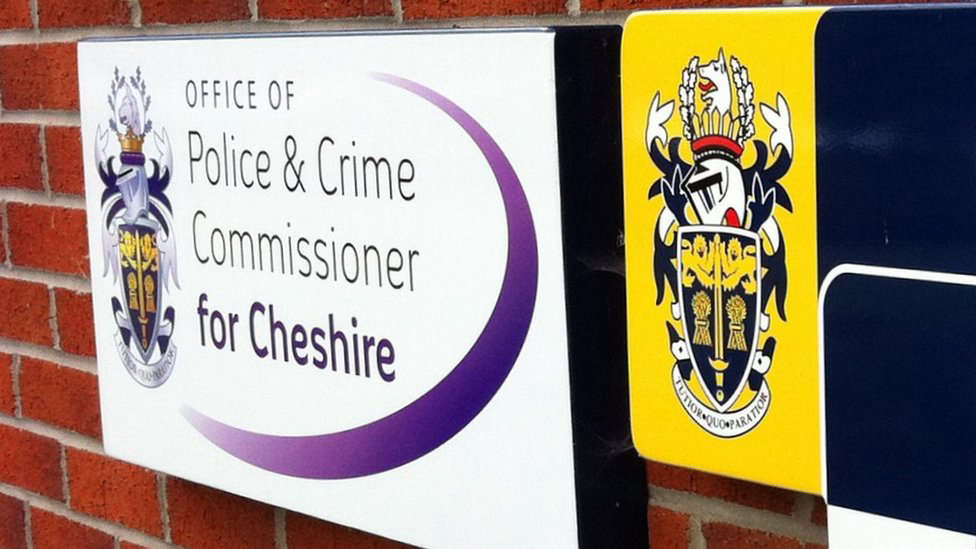 Your chance to get involved in police scrutiny meetings
Your chance to get involved in police scrutiny meetings
 New Events at Jodrell Bank
New Events at Jodrell Bank
 Inspiring Futures at The Queen’s School
Inspiring Futures at The Queen’s School
 Bowmere Hospital celebrates 20 years of mental health care
Bowmere Hospital celebrates 20 years of mental health care
 Man charged with burglary and drug offences following Chester police stop check
Man charged with burglary and drug offences following Chester police stop check
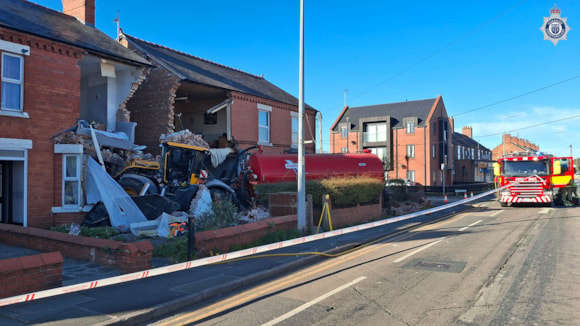 Vicars Cross Road closed following collision in Chester
Vicars Cross Road closed following collision in Chester
 Man jailed for controlling and coercive behaviour and assault
Man jailed for controlling and coercive behaviour and assault
 Plan unveiled to transform and improve emergency care at Countess of Chester Hospital
Plan unveiled to transform and improve emergency care at Countess of Chester Hospital
 Chester & Wirral Football League - Weekend Round Up
Chester & Wirral Football League - Weekend Round Up
 Ladbrokes returns to Chester Racecourse
Ladbrokes returns to Chester Racecourse
Comments
Add a comment